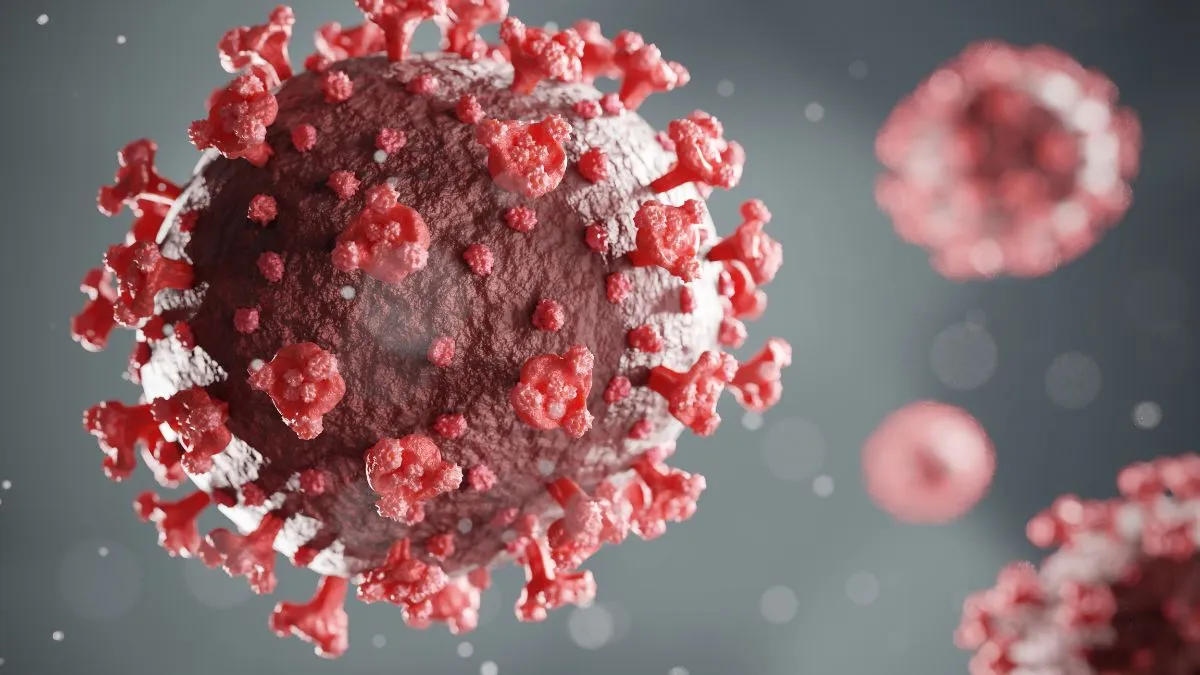
- Says Nigeria at moderate risk
- Directs all hospitals to enhance infection prevention and control practices
The Nigeria Centre for Disease Control and Prevention (NCDC) has clarified that rumours about the World Health Organization (WHO) declaring the Human Metapneumovirus (HMPV) a Public Health Emergency of International Concern (PHEIC) are false and should be disregarded.
According to the agency, the WHO has not made such a declaration.
Meanwhile, the NCDC has issued advisories to hospitals nationwide to ensure enhanced Infection Prevention and Control (IPC) practices, including proper hand hygiene, environmental cleaning, respiratory hygiene, and cough etiquette.
It directed all health facilities to identify an appropriate isolation room where cases can be quickly isolated while receiving care.
Recent reports indicate a significant rise in Human Metapneumovirus (HMPV) cases in China, as well as increased respiratory infections linked to HMPV in countries such as the United Kingdom (UK), France, and Germany, particularly during the winter season. The UK Health Security Agency (UKHSA) has highlighted a notable rise in hospital admissions due to HMPV-related complications, especially among children under five and older adults in care homes.
In a statement yesterday in Abuja, Director General Dr. Jide Idris said that the rise in HMPV cases underscores the need for heightened preparedness and vigilance.
He noted that, in response to recent reports of increased HMPV activity in China and other affected regions, as well as growing public interest in the matter, the NCDC, in collaboration with the Federal Ministry of Health and Social Welfare, is closely monitoring global developments and has implemented actions to ensure public health safety.
Dr Idris stated that a dynamic risk assessment conducted by the NCDC, in collaboration with the Federal Ministry of Health, the World Health Organization (WHO), the U.S. Centers for Disease Control and Prevention (USCDC), and the UK Health Security Agency (UKHSA), classified the risk as moderate for Nigeria.
READ ALSO: NCDC alerts Nigerians on spike in Lassa fever cases, deaths
This evaluation, he explained, will guide preparedness efforts, decision-making, and response strategies to mitigate potential impacts.
The Director General explained that HMPV is a respiratory virus that can cause illnesses ranging from mild cold-like symptoms to severe respiratory infections, particularly in young children, older adults, and individuals with weakened immune systems. He added that there is currently no specific antiviral treatment or vaccine for HMPV.
He noted that the symptoms include cough, fever, nasal congestion, shortness of breath, and wheezing.
Dr Idris noted that the NCDC, in collaboration with Port Health Authorities, is taking proactive steps to ensure robust preparedness at all international points of entry (PoEs) in response to the dynamic risk assessment of HMPV. These measures are designed to mitigate the potential risk of HMPV transmission through international travel.
Key actions include conducting a comprehensive situation analysis at all international PoEs to assess current readiness levels.
He further disclosed that an Entry Implementation Protocol on HMPV, approved by the Honourable Minister of Health and Social Welfare, is being developed and will be distributed to all points of entry to guide response activities. Quarantine facilities are also being identified and prepared to manage any suspected or confirmed cases if required.
“Infection Prevention and Control (IPC) materials are being deployed to PoEs to ensure adherence to hygiene and safety protocols. Nigeria operates a National Influenza Sentinel Surveillance (NISS) system, comprising sentinel sites distributed across the six geopolitical zones of the country. These sites, which include tertiary and secondary health facilities, monitor Influenza-like Illness (ILI) and Severe Acute Respiratory Infections (SARI),” he stated.
“As of January 6, 2025, data from this surveillance system does not indicate any unusual increase in respiratory infections, including those caused by Human Metapneumovirus (HMPV). However, given the global trends in HMPV cases, the NCDC is proactively implementing measures to strengthen the country’s preparedness and response capacity.”
Dr. Idris reaffirmed the NCDC’s commitment to safeguarding the health of Nigerians, emphasizing that Information, Education, and Communication (IEC) materials are being developed and distributed to raise awareness and provide clear guidelines for frontline staff and travelers.
READ ALSO: WHO seeks innovative regulatory practices for greener pharmaceuticals
He urged the public to reduce the risk of HMPV infection by frequently washing hands with soap and water for at least 20 seconds, covering their mouths and noses with a tissue or elbow when coughing or sneezing, among other measures.
Dr. Idris also called on healthcare workers to use appropriate Personal Protective Equipment (PPE) when attending to patients with respiratory symptoms, provide symptomatic care, and promptly refer severe cases to specialist facilities.
“The National Influenza Sentinel Surveillance (NISS) sites across the six geopolitical zones monitor Influenza-like Illness (ILI) and Severe Acute Respiratory Infections (SARI). This platform, which is already testing for COVID-19, will now also start testing for HMPV. Provisions will be made to increase the number of tests conducted. Additionally, laboratories in states with international airports will be supported to enable them to test for HMPV,” he added.
Dr. Idris pointed out that the NCDC is collaborating with state governments and healthcare facilities to provide training for healthcare workers, ensuring adequate case management teams are in place and ready to respond if needed.
“This will ensure that healthcare workers can provide appropriate care and maintain a high index of suspicion. Supportive care and a high level of vigilance are crucial. We are requesting state governments to activate their treatment or isolation centres to manage cases appropriately.”
He concluded by stating that essential materials such as PPEs (face masks, gloves, and hand hygiene supplies) and other IPC items have been stockpiled for rapid deployment if required, along with laboratory consumables, reagents, and other necessary supplies.






